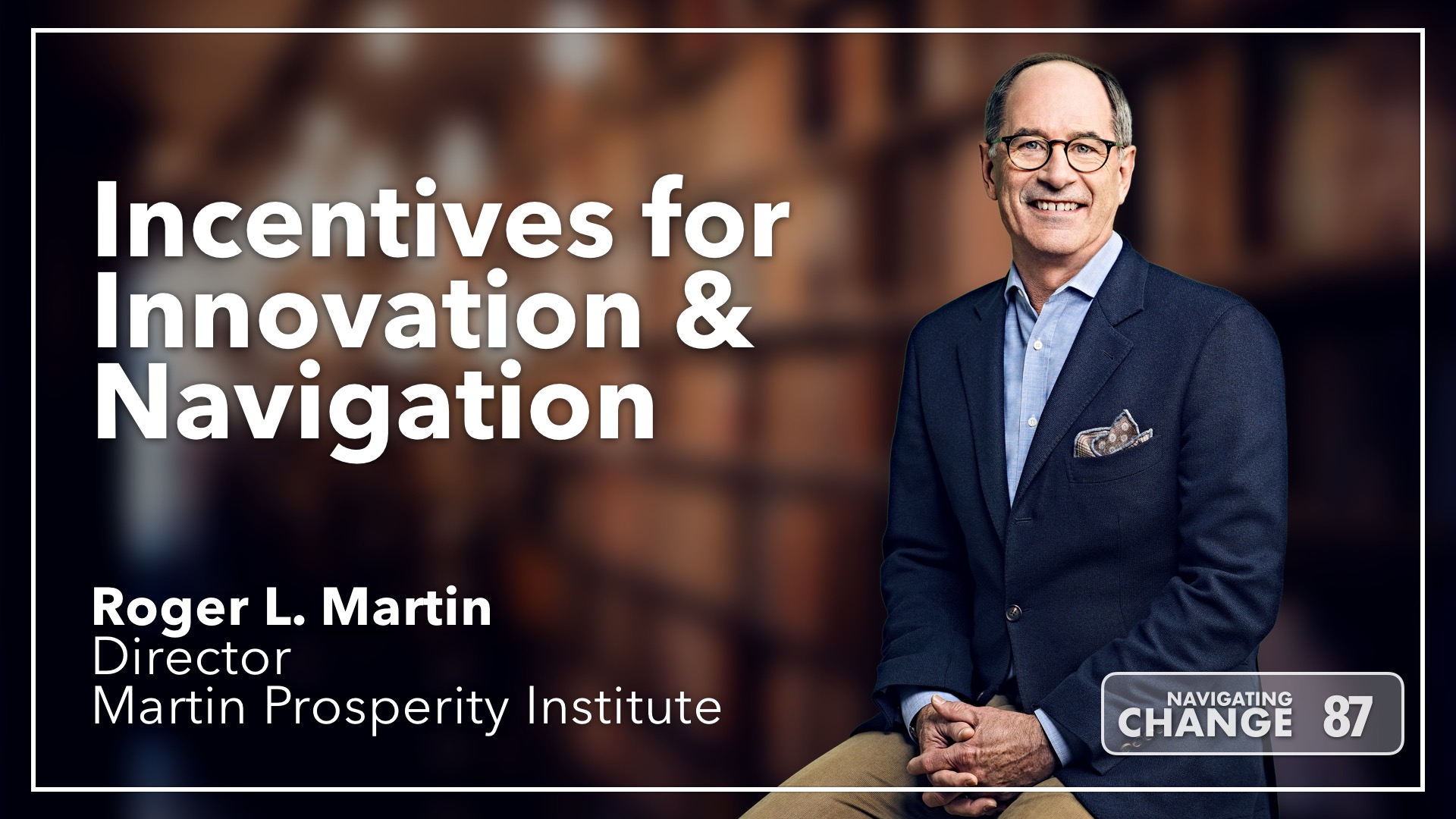87: Incentives for Innovation and Navigation with guest Roger L. Martin
"In tasks of the mind, monetary incentives don't improve performance."
So says today's guest Roger L. Martin, and in doing so he provides the foundation for our conversation on the role of incentives in delivering powerful creative solutions to our institutions' most challenging problems.
Much of the work we do in facing the new normal in higher ed involves financial objectives. Shared services? Tenure? Consolidation? Program expansions or cuts? Whether you're in senior administration, staff, or academics, you're likely addressing these challenges (and more) through the lens of a financial goal.
Professor Martin's latest work in Harvard Business Review, "The Rise — and Likely Fall — of the Talent Economy," lays out the case for the disconnect of high salaries to performance in knowledge work. But can the same case be made for the impact of significant financial goals on cultivating our best creative solutions from our teams?
From Howard Teibel's work with institutions in administrative and academic reviews, and Professor Martin's work as an academic and business leader, comes a conversation that addresses the competencies of our teams, and inspiring our best players to do their best work in the face of great challenge before them.
Links & Notes
About Roger L. Martin
Roger Martin is Premier’s Chair in Productivity & Competitiveness and Academic Director of the Martin Prosperity Institute at the Rotman School of Management. From 1998 to 2013, he served as Dean. Previously, he spent 13 years as a Director of Monitor Company, a global strategy consulting firm based in Cambridge, Massachusetts, where he served as co-head of the firm for two years.
His research work is in Integrative Thinking, Business Design, Strategy, Corporate Social Responsibility and Country Competitiveness. He writes extensively and is a regular contributor to: Harvard Business Review’s The Conversation blog, the Financial Times’ Judgment Call column, and Washington Post’s On Leadership blog. He has written eighteen Harvard Business Review articles and published eight books: Playing to Win (with A.G. Lafley) (Harvard Business Review Press (HBRP), 2013), Fixing the Game (HBRP, 2011), The Design of Business (HBRP, 2009); The Opposable Mind (HBRP, 2007); The Responsibility Virus (Basic Books, 2002); Canada: What It Is, What It Can Be (with Jim Milway, Rotman-UTP Publishing, 2012); and Diaminds (with Mihnea Moldoveanu, University of Toronto Press, 2009), and The Future of the MBA (with Mihnea Moldoveanu, Oxford University Press, 2008). In addition, he co-edited Rotman on Design (with Karen Christensen, Rotman-UTP Publishing, 2013).

